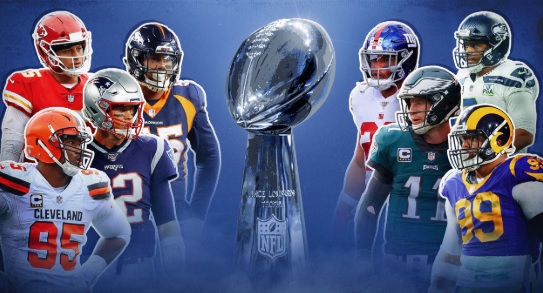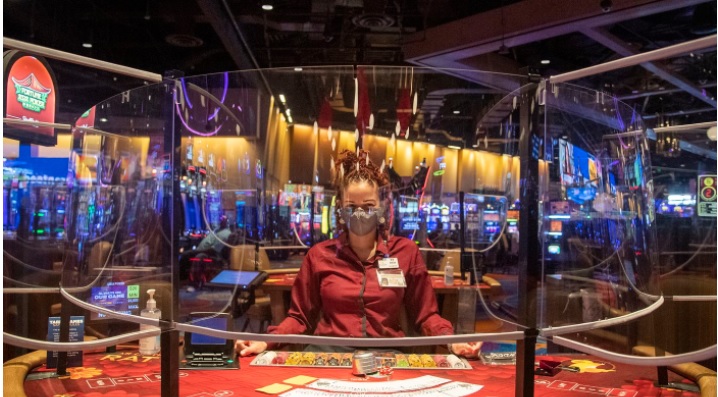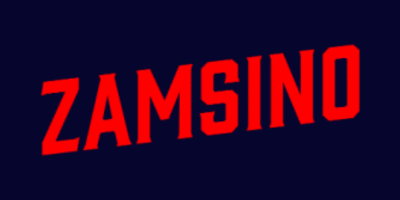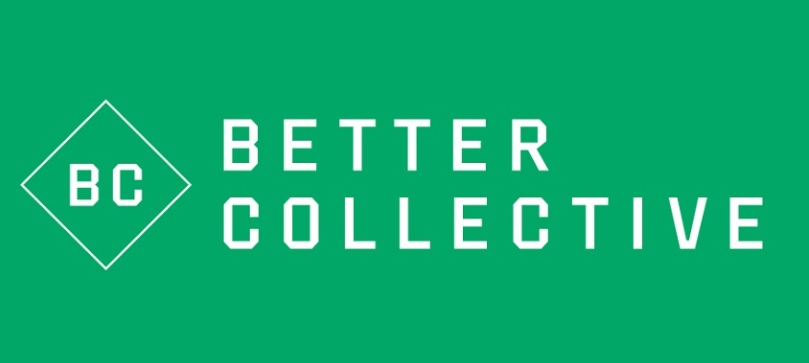By: Victor H Royer
American Sports Wagering is booming. And that seems an understatement as of today. After the US Supreme Court overturned the much-hated PASPA Act of 1992 (the Professional and Amateur Sports Protection Act) – which was struck down in 2018 in a case brought about by the State of New Jersey – this opened the door to Sports Wagering by individual US States. Some States acted quickly, and as a result have experienced enormous proceeds as a result – and the very-much-needed Tax revenue Sports Wagering makes possible for them. And some States charge hefty taxes on Sports Wagering indeed!

Image: Shutterstock
Currently 30 US States – and the District of Columbia (Washington D.C.) – have some form of legalized Sports Wagering. Among these most charge taxes below 10%, which is in line with the established “norm” for the industry, as standardized mostly in Nevada. But Nebraska and Maryland have taxes in excess of 15%, while Delaware, New Hampshire, and Rhode Island charge 50% on Sports Wagering! And Pennsylvania – just next to New Jersey – charges 34%. In New Jersey – the State that made all this possible – tax rates are 15% for online games, 8.5% for Sports Wagering in person in the casino – and 13% for Sports Wagering online. So, this makes Sports Wagering a lot better in New Jersey, as opposed to neighboring Pennsylvania – a fact not lost on that State’s haphazard legislation and legislators.
Despite this, Pennsylvania’s revenue from Sports Wagering continues to break all expected records. In the latest report from the Pennsylvania Gaming Commission, the last fiscal year produced almost $3.9 Billion in gaming revenue, smashing the previous records. This despite competition from New Jersey, with lower taxes, and despite the Pandemic. Or, perhaps, because of the Pandemic, when most of the US States, and the country in general, were shut down, leaving players happily wagering online from their homes.
But all this is still only within each State – and requires each State Legislature to approve Sports Wagering, and then additionally provide for Sports Wagering licenses and operators, and operating systems. Although this is often cumbersome, and long-in-the-tooth as far as speed of legislation, the recent Pandemic – which is still ongoing, sadly, in the USA and UK and elsewhere in the world to varying degrees – contributed significantly to the speedy adoption of Sports Wagering by many US States, desperate for tax revenue and for business recovery in general.
What’s still preventing Sports Betting, and Online Wagering and, particularly, Online Poker – from being adopted across the USA, is the 1961 Wire Act. Although the Wire Act was ruled as applying only to “sports” in 2018, the US Department of Justice (DOJ) later backtracked and reversed it’s ruling, throwing the entirety of the US Online Wagering business into a mess yet again. Naturally, the DOJ was challenged on this re-interpretation immediately, and – just last month – failed to meet the deadline for appeal. So – at least for now, and for Online Poker especially – the original 2018 DOJ interpretation of the Wire Act as applying only to “sports” continues to make in possible for US States to form Multi-State Internet Gaming Agreements, such as those now existing between Nevada, New Jersey and Delaware, which allows them to “share” online poker players.
But Online Casinos, however – as well as Interstate Sports Wagering – are an entirely different nut to crack, and one that’s not so easy. As of this time, only the State of New Jersey allows full online casinos and games, in addition to in-person and mobile Sports Wagering. This limitation to just the State of New Jersey – it is hoped – will soon change … provided, of course, that the DOJ won’t insist on further clouding its 2018 interpretation of the Wire Act. The new US Attorney General, Merrick Garland, is under increasingly intense pressure to clarify this 2018 DOJ interpretation, and, perhaps even more so, to entirely vacate the 1961 Wire Act altogether.
In 1961 the intent was to prevent Organized Crime from dominating the illegal wagering and Sports Wagering business, which even then produced enormous profits for the Mob, and no taxes for the government. Today, the Sports Wagering business in the USA alone clocks in at over $150 Billion annually! And while such enormous sums were unheard-of in 1961, the sums generated at that time from illegal sports wagering, horseracing, and illegal casinos, still produced staggering amounts of money for organized crime. And the enormity of these sums wasn’t lost on the goody-two-shoes legislators in 1961, who realized they ain’t getting a piece of the action and so – nah-nah-nah-nah – they passed the 1961 Wire Act to make it even more difficult for the illicit trade in the second oldest profession of human kind – Sports and Horseracing bets.
But in 1961 betting across State lines actually required a “wire” – because at the time there weren’t any such things as the Internet, or Wi-Fi, or anything like that. And no one at that time could have possibly foreseen the enormity of the technological advances which would make the 1961 Wire Act – as written – today so completely obsolete as it is now. Even ridiculously obsolete, and perhaps humorously so – if it wasn’t still being held up as the “standard” – keeping online and sports wagering hog-tied to an age long gone, and legalities, moralities, and policies so outdated that they seem truly ancient to everyone. Ask anyone under 30 what is a Telegraph, and they’ll look at you equally as confused as if you showed them a photo of a coin-operated Phone Booth, and asked them to identify it.
While America leads the world in many ways, the speed of its Democracy is not one of them. And neither is the understanding by the powers that are – who seem to be mostly old white men who appear to think that a historical reference to a Blackberry is a breakfast Jam, and a Smart Phone is the speaker on the desk from the TV Series “Mad Men” – and whose combined understanding of the 21st century seems to be buried in re-runs of Leave It To Beaver. And, of course, we can throw in the religious zealots who think than everything is a Sin – unless, of course, it’s the funding drive for their coffers, when all of a sudden gambling is OK (as long as they get the cash).
In all of this, of course, there’s one overriding principle for everyone – and that’s revenue. As the saying goes: Money Talks, BS Walks. And so it’s always been. Today, all US States, and the entirety of the USA itself, as well as the UK, Europe, and everywhere else in the world where gaming is possible – all of these concerns have one concern in common, and that is money. Or, rather, the lack thereof. In terms of Tax revenue, of course. Cash-strapped States, and gaming industries in general, all collectively drool at the prospect of getting their share of the $150 Billion-plus annual US Sports Wagering market – with full interstate online poker compacts not so far behind – and full-suite online State-by-State casino gaming soon thereafter. And the Pandemic has accelerated these concerns, and has indeed also so accelerated the respective State Legislatures into getting off their collectively dusty duffs, and onto the voting stools to pass the required laws to make all this possible for them as well, in their State.
So – what is the State of the US States? Here is a list of those that currently have some form of legalized Sports Wagering, and what kind they offer:

Additionally, the following States are “almost there” with Sports Wagering in varying degrees and forms: Washington, Maryland, South Dakota, Louisiana, Wyoming, Nebraska, Arizona, Florida, and Connecticut.
And the following States are still dragging their feet, but have begun to at least consider Sports Wagering legislation: Oklahoma, Maine, Kentucky, Massachusetts, Minnesota, Missouri, Kansas, South Carolina, California, Ohio, Hawaii, Texas, Georgia, Vermont, Alabama, Alaska and North Dakota.
Finally, Idaho and Wisconsin have yet to even begin considerations on Sports Wagering in their States. And, of course, Utah is unlikely to ever have it at all. Or any other gambling.
* No betting on games involving in-state college teams.
** None at Chinook Winds Casino Resort; Sportsbooks operated by the Oregon Lottery do not allow wagering on in-state college gam
The Business of the Business of Sports Wagering
Naturally the business of the business of Sports Wagering also requires the actual “business” that makes it possible. And that’s where the Suppliers and Operators come in. Among the Operators currently active in the USA are: DraftKings, FanDuel, BetMGM, William Hill, FOX Bet, PointsBet Sportsbook, Unibet Sportsbook, BetRivers Sportsbook, theScore Bet Sportsbook, and Parx in Pennsylvania.
Major International Corporations supply products and services to the online gaming and – specifically – Sports Wagering industry. The two biggest players are, of course, IGT and Scientific Games. IGT – International Games Technology – headquartered in Italy and the UK, along with its major manufacturing and systems base in Las Vegas and Reno, Nevada, USA – currently provide Sports Wagering support and suites to 17 US States. Similarly so, Scientific Games (SG) also provide their respective systems and support to 17 US States, as of the time of this writing.***
*** Since the writing of this original story for SBO magazine, Scientific Games has announced the sale of all of their Sports Wagering and Lottery assets. Reportedly for $1.3 Billion for their Sports Wagering assets, and $750 million for their Lottery assets. This information and figures are as yet unconfirmed as of the time of this update.
But let us also note that because of fiscal necessity changes in Sports Wagering legislation are happening quickly, and so it is with the providers and the companies making the Sports Wagering systems and support possible. As a result, some of the details in this article may have advanced by the time this reaches press, and thereafter as time goes on. However, the basis upon which this is being offered still remains as is, and as viable as always.
In conclusion, Sports Wagering in the USA is here to stay.
Notwithstanding any grumbling by anti-gambling foes – and other groups universally opposed to anything that makes living fun and worthwhile – it is now highly unlikely that any Government, be it State or Federal, will just throw away tax revenue from the current $150 Billion-plus annual cash-cow – growing ever-more-fat by the moment. Especially so given the circumstances of the Pandemic and its aftermath on each State’s economy, as well as the entirety of the USA itself. And, of course, the rest of the world.
But American politics can be a strange fellow indeed.
In 2006 all those religious zealots forced the UIGEA legislation on the entire country, and by so doing simply threw away tax revenue from the then $20 Billion annual Poker Boom revenue.
Maybe they’ve learned their lesson, but who knows? Maybe some nitwit somewhere in the near future will cause so much fuss and ruckus that the politicians will once again fear their most terrible fear – that of not being re-elected – and will again cow-down to such forces of sheer stupidity. And should this happen – and truly hopefully not so – the bright star that is America today will perhaps again fade just a little bit, and descend yet again into the darkness of sectionalized isolationism which may once again bring about the Dark Ages of online and Sports Wagering, just as they so did when these zealots killed off the Poker Boom in 2006. And if this happens, then shame on all of us – because We The People let it happen. But, well…perhaps this conclusion is indeed merely a fable of possible horrors – those that never again shall be.
Victor H Royer is President of Gaming Services & Research. He is a 38 year veteran of Las Vegas gaming, a 30+ year consultant to the gaming industry, author of 55 books, and more than 8,000 articles on casino games and gaming. In addition he has researched and authored hundreds of industry reports on the subject of player preferences, marketing, player development and customer relations. He can be reached at: DrVHR@aol.com
*** This article was originally published September 2021 in Sports Betting Operator Magazine***





















